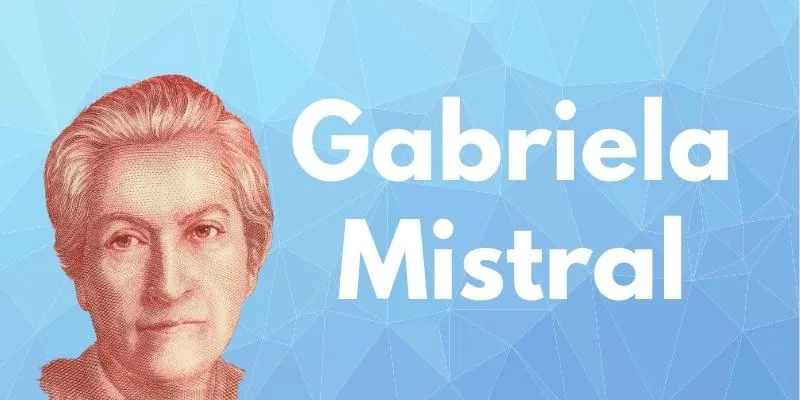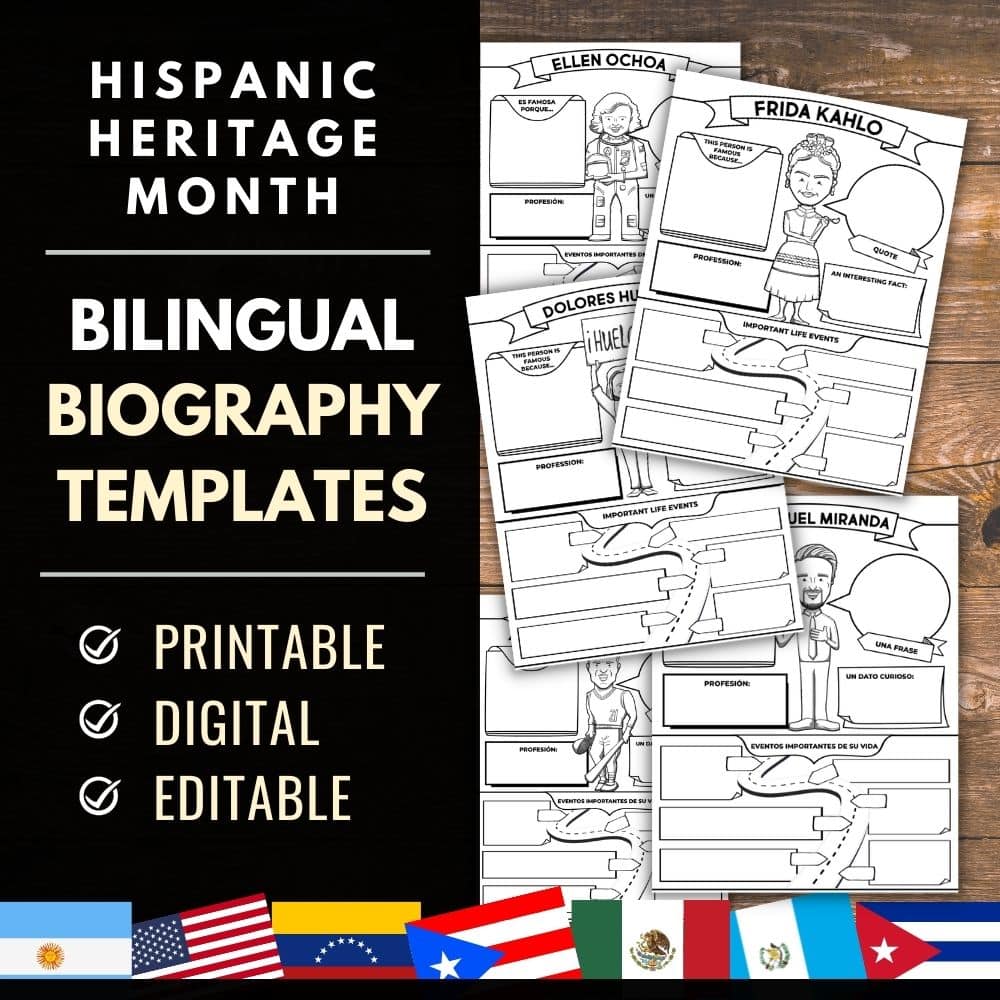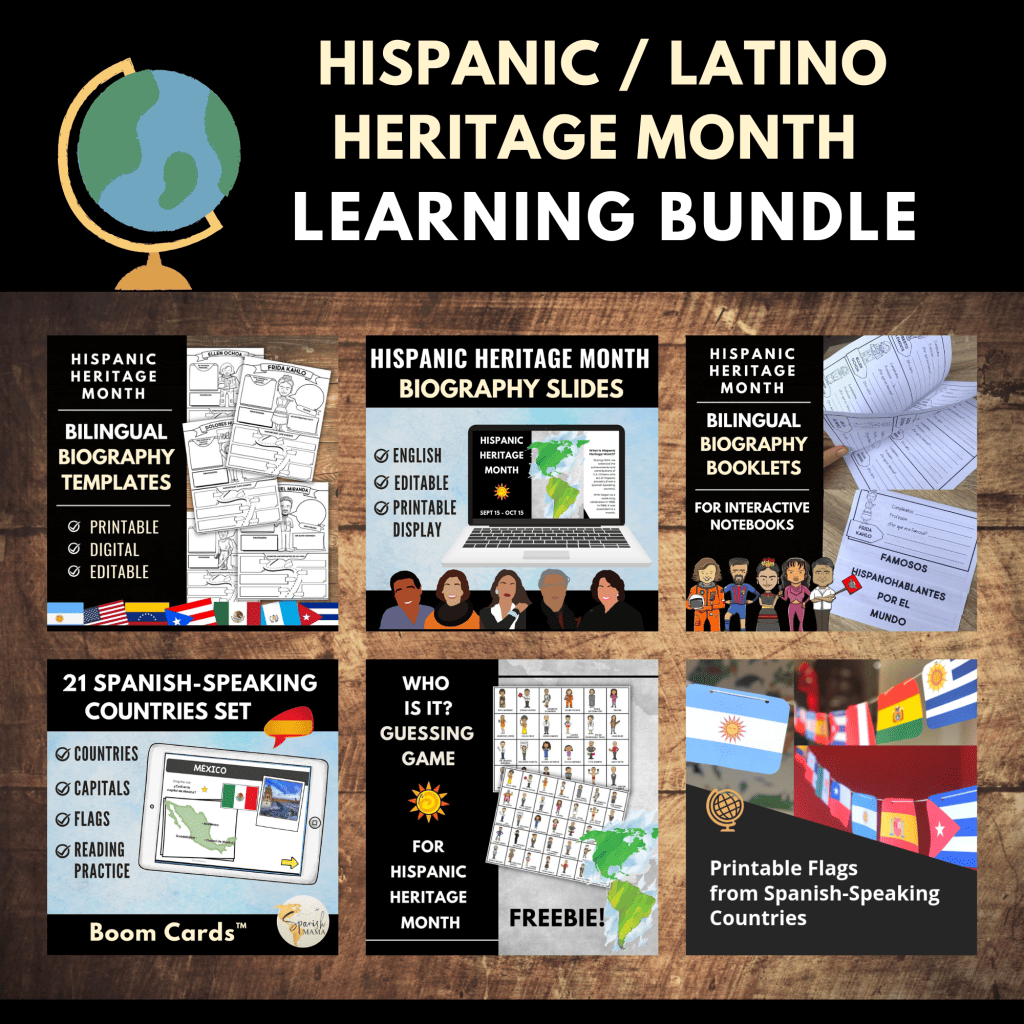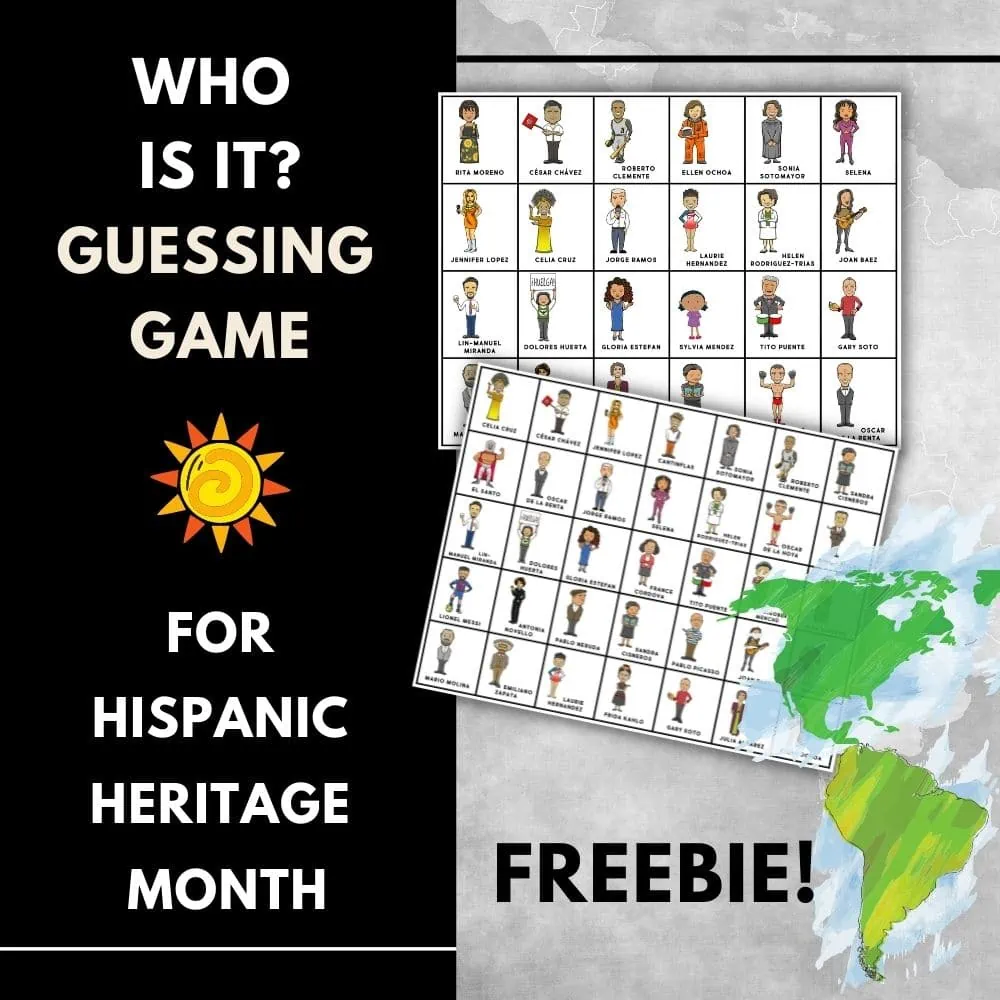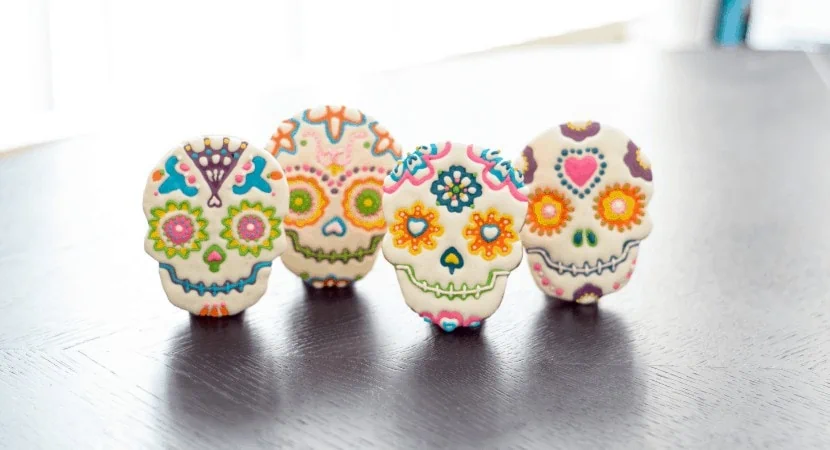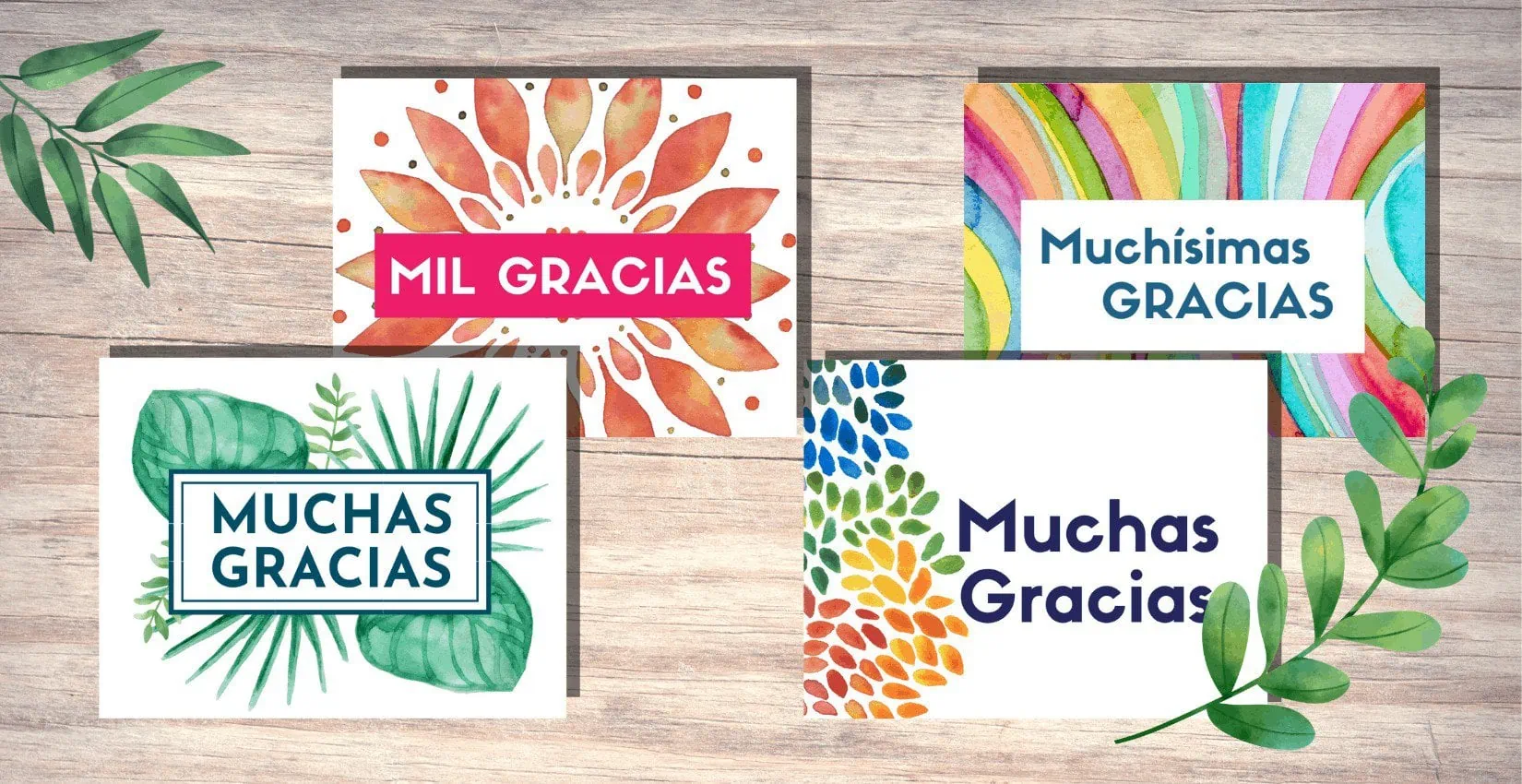All About Gabriela Mistral: Quotes, Poetry, Books, and Biography
Inside: A collection of Gabriela Mistral quotes, along with resources for learning about her life and accomplishments.
Gabriela Mistral was a Chilean poet and the first Latin American recipient of the Nobel Prize for Literature, in 1945. She is most remembered for her poetry, along with her advocacy on behalf of women, children, indigenous people, and the poor.
“Mistral’s works, both in verse and prose, deal with the basic passion of love as seen in the various relationships of mother and offspring, man and woman, individual and humankind, soul and God.”
– Santiago Daydí-Tolson, Poetry Foundation

Here’s an index of what’s included in the post. You can click on any link to jump straight to that section:
1. Gabriela Mistral Biography
2. Famous Poems by Gabriela Mistral
3. Gabriela Mistral Quotes
4. Resources for Students to Learn More
5. YouTube Biography Videos
Related: Famous Latinos & Hispanic Americans Home Page
Gabriela Mistral Biography
Gabriela Mistral was born April 7, 1889 in Vicuña, Chile. Her given name at birth was Lucila Godoy Alcayaga. She grew up in a small rural village with her mother and sister.
At the age of 11, Mistral left her home to attend school back in Vicuña. The loss of her beloved village was difficult, and she experienced discrimination. She was falsely accused of stealing school supplies and left the school, ending her formal studies at the age of 12.
After working several years as a teacher’s aide, she received her teacher’s certificate in 1910 through self-guided studies and taking an exam in Santiago.
Over the the next decade, Mistral taught both primary and secondary students and served as principal of various schools in different parts of Chile. As an educator, she organized night school classes and was always aware of those who were economically disadvantaged.
She published her first poem in 1904, and submitted her first article to publication in 1906, “La instrucción de la mujer” (“The Education of Women”). Throughout the rest of her life she continued to publish poems, articles, and give talks.
In 1914, Mistral won a Chilean prize for her “Sonetos de la muerte” (“Sonnets of Death“). Eight years later, she published her first full book, Desolación. Both works were born out of the tragedy she experienced when her first love died by suicide and the second man she fell in love with married someone else.
Mistral began to travel at this time, and was invited to Cuba, Mexico, to speak and help organize their education sectors. She visited Europe, the United States, Argentina, Brazil, and Uruguay.
As a writer and an intellectual, she fought for the rights of indigenous people, children, women, and the poor. She was deeply religious as well, with roots to the Franciscan order and spent a few years adopting Buddhist practices. Mistral’s connection to nature and love for home also show throughout her work.
In 1925, she Mistral appointed to the Latin American section in the League of Nations in Paris. Throughout the 1930’s, Mistral continued to write for major newspapers and was invited to teach courses at Columbia University. She also taught at a Puerto Rican university and served at the consul in Spain.
In 1935, she was appointed by Chile as consul for life and moved to Brazil for a time. In addition to backdrop of war at the time, she suffered several personal losses of friends and family. This grief affected her for the rest of her life.
In 1945, she received the Nobel Prize in Literature, the first Latin American and only the fifth woman to do so. With her prize she bought a home in California, and lived in the United States on and off for the rest of her life.
Gabriela Mistral died in 1957 of cancer in Long Island, but her body was taken to her native Chile, and she was buried in the village where she spent her childhood.
Awards
- National Literature Prize of Chile
- Nobel Prize in Literature
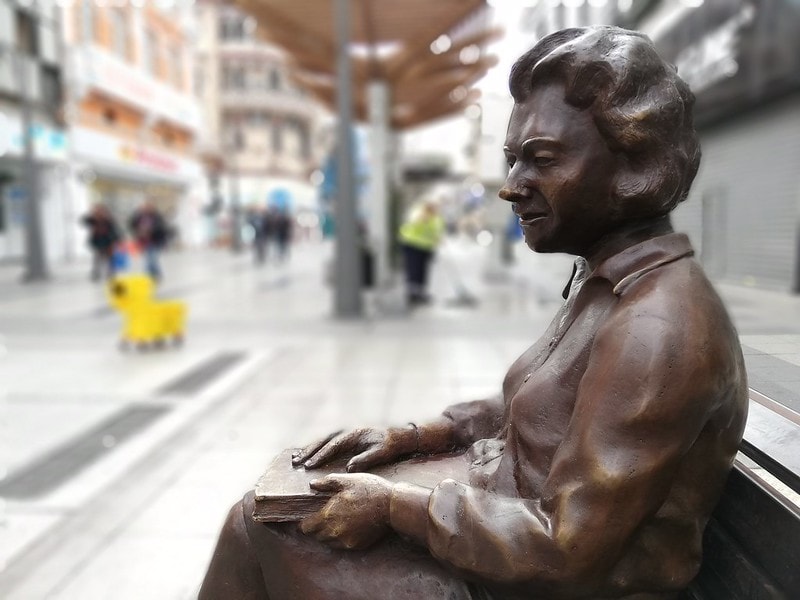
Famous Gabriela Mistral Poems
Here are excerpts from some of Mistral’s most well-known poetry, with links to the full text.
1. Piececitos
“Piececitos de niño,
dos joyitas sufrientes,
¡cómo pasan sin veros
las gentes!“
See the full poem here.
2. La Oración de la Maestra
“Dame el amor único de mi escuela; que ni la quemadura de la belleza sea capaz de robarle mi ternura de todos los instantes…
Dame el ser más madre que las madres, para poder amar y defender como ellas lo que no es carne de mis carnes.”
See the full poem here.
3. La Flor del Aire
“Me subí a la ácida montaña,
busqué las flores donde albean,
entre las rocas existiendo
medio dormidas y despiertas”.
See the full poem here.
4. Balada
“Él pasó con otra;
yo le vi pasar.
Siempre dulce el viento
y el camino en paz.
¡Y estos ojos míseros
le vieron pasar! “
See the full poem here.
5. Todas Íbamos a ser Reinas
“Lo decíamos embriagadas,
y lo tuvimos por verdad,
que seríamos todas reinas
y llegaríamos al mar”.
See the full poem here.
6. Ángel Guardián
“Es verdad, no es un cuento:
hay un Ángel Guardián
que te toma y te lleva como el viento
y con los niños va por dónde van.”
See the full poem here.
20 Inspirational Gabriela Mistral Quotes in English
1. I have a day. If I know how to make the most of it, I have a treasure.
“Tengo un día. Si lo sé aprovechar, tengo un tesoro”.
– Gabriela Mistral
2. Give me your hand and we’ll dance; give me your hands and love me. Like one flower we’ll be, and nothing else.
“Dame la mano y danzaremos; dame la mano y me amarás. Como una sola flor seremos, como una flor, y nada más.”
– Gabriela Mistral
3. Education is, perhaps, the highest form of searching for God.
“La educación es, tal vez, la forma más alta de buscar a Dios.“
– Gabriela Mistral
4. Poetry simply exists within me, and on my lap; it is the thirst of a submerged childhood. Although the result is bitter and hard, the poetry I make cleanses me of the world’s dust and even the inscrutable, essential vileness similar to what we call original sin.
“La poesía es en mí, sencillamente, un rezago, un sedimento de la infancia sumergida. Aunque resulte amarga y dura, la poesía que hago me lava de los polvos del mundo y hasta de no sé qué vileza esencial parecida a lo que llamamos el pecado original, que llevo conmigo y que llevo con aflicción”.
– Gabriela Mistral
5. You shall create beauty not to excite the senses but to give sustenance to the soul.
“No darás la belleza como cebo para los sentidos, sino como el natural alimento del alma“.
– Gabriela Mistral
6. The world changes in an instant and we are born in one day.
“El mundo cambia en un instante y nacemos en un día”.
– Gabriela Mistral
7. Love beauty; it is the shadow of God on the universe.
“Ama la belleza, es la sombra de Dios sobre el universo”.
– Gabriela Mistral
8. We are guilty of many errors and many faults, but our worst crime is abandoning the children, neglecting the fountain of life. Many of the things we need can wait. The child cannot. Right now is the time his bones are being formed, his blood is being made, and his senses are being developed. To him we cannot answer ‘Tomorrow,’ his name is today.
“Nosotros somos culpables de muchos errores y muchas faltas, pero nuestro peor crimen es el abandono de los niños negándoles la fuente de la vida. Muchas de las cosas que nosotros necesitamos pueden esperar, los niños no pueden, ahora es el momento, sus huesos están en formación, su sangre también lo está y sus sentidos se están desarrollando, a él nosotros no podemos contestarle mañana, su nombre es hoy”.
– Gabriela Mistral
9. I believe in my heart, the one I wring out to dye the canvas of life.
“Creo en mi corazón, el que yo exprimo para teñir el lienzo de la vida”.
– Gabriela Mistral
10. There are kisses that leave traces on the lips like sunshine between ice.
“Hay besos que en los labios dejan huellas como un campo de sol entre dos hielos”.
– Gabriela Mistral
Printables and links to learn more
Free Resources for students:
Print a quote from these free quotes posters from TpT, featuring other famous Latinas and Gabriela Mistral.
Latinas in Their Own Words worksheet, including page for Gabriela Mistral (elementary).
Poetry study for Yo no tengo soledad (high school).
Another set of posters about famous Latinas, this time with a summary of their contributions.
You can check out these resources as well, for more:
Gabriela Mistral Biography Videos
Here is an excellent biography in English that shares Mistral’s life and work (11min 12s):
This illustrated biography is in Spanish and was created for kids, though it seems most comprehensible for older students (4min 19s):
I hope these quotes and resources were helpful to you! If you have more ideas for resources or lessons, let me know in the comments below!
Image Sources:
Image 2: “Exhibición sobre Gabriela Mistral” (CC BY-SA 2.0) by Ministerio de Cultura de la Nación
Image 3: “Gabriela Mistral” (CC BY-NC-ND 2.0) by ArmanMesh
